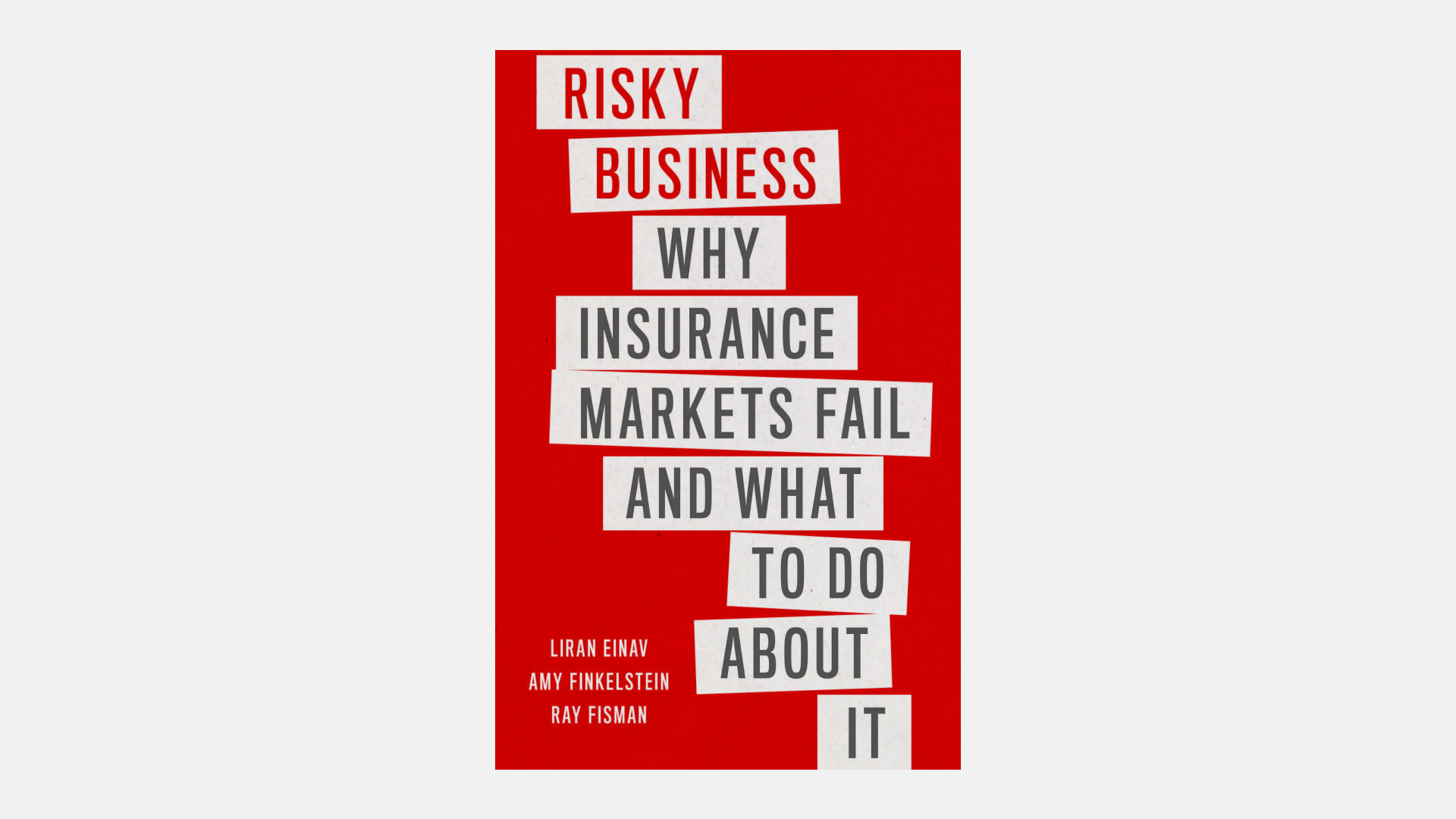Insurance doesn’t work like other products. Apple cares about how many iPhones it sells, not so much about who buys them. But for insurance companies, picking the right customer is key to their success. That’s because the people most likely to want insurance are often the most likely to make claims. It’s why, for example, life insurance companies make you take a medical exam when you apply for coverage.
Economists call this problem adverse selection, and insurance is a textbook example. In their new book, “Risky Business: Why Insurance Markets Fail and What To Do About It,” economists Liran Einav, Amy Finkelstein, and Ray Fisman explain how adverse selection quietly affects nearly every aspect of our lives, from our teeth (it’s the reason dental insurance fully covers cleanings and not root canals) to our houses (try buying home insurance in a wildfire area).
“Insurance offers a bit of security in an uncertain world, and our book is about the fact that insurance markets often fail, why that is, and how that can help you understand the world around you, including some of the mysteries and annoyances that many consumers face, like expensive pet insurance, crummy dental insurance, and intrusive questions from your auto insurer about your credit rating,” says Finkelstein, a professor of economics at the Massachusetts Institute of Technology.
Finkelstein and her co-authors are certified insurance nerds. But how do you get readers interested in a topic most people avoid? One way is stuffing the book with humor and real-world examples. “We picked a style that was conversational and hopefully amusing to try to get people to engage in a topic that they may not realize is exciting, extremely important, and can be really fun,” Finkelstein says.
She credited Fisman with pushing to include real-world results to illustrate the academic concepts the book discusses, like the selection problems that killed American Airlines’ AAirpass program in the 1980s, or the various countries that sold annuities to fund wars, but were plunged into debt by long-lived buyers.The book was nearly named “Why Is Insurance Different From Broccoli?” after a moment in 2012 during a Supreme Court hearing on the Affordable Care Act, when Justice Antonin Scalia compared the individual mandate to “mak(ing) people buy broccoli.” [1]
“Scalia obviously, I think, understands the difference between insurance and broccoli,” Finkelstein says. “He was trying to make a rhetorical point about potential overreach of an intrusive state.”
But the reason the government gets involved with insurance and not broccoli is because “the supermarket doesn’t care who buys its broccoli, but your insurer cares a great deal who buys its insurance,” Finkelstein says. If only unhealthy people buy broccoli, the supermarket won’t care. If only unhealthy people buy health insurance, health insurance companies won’t last very long, and the market will collapse. That’s why the Affordable Care Act initially included a mandate to buy health insurance, to ensure enough young, healthy people were also signing up. Mandates also exist in the markets for flood insurance and car insurance, for similar reasons.
Because insurance companies care so much about who they sell to, they try to collect as much information as they can about their customers. As personal data becomes ever easier to collect, regulators and insurers themselves have to be careful about how this data gets used. It seems obvious that insurance companies shouldn’t be able to use information that’s not related to how costly a customer is, like your religion or eye color, to determine how much to charge.
And many customers have in fact been resistant to giving up too much data, even in exchange for discounts, according to the Policygenius Home & Auto Insurance Technology Survey.
These selection problems are becoming more concrete as the world becomes riskier — as the sea level rises, pandemics spread, and wars rage. “Risky Business” explores how insurance companies, policymakers, and insurance consumers are facing the challenge of managing that risk.
“The whole magic of insurance is that none of us like risk,” Finkelstein says. “We’d all prefer security and stability. Each of us faces the normal vicissitudes and risks of life, but if something catastrophic happens, it could happen to me or it could happen to a thousand other people. When we pool that risk, we can collectively face it. We’re all willing to give up a little bit — that’s your premium — so that one of us who is hurt gets covered in the event of a disaster. That is a tantalizing prospect for security in an uncertain world.”


